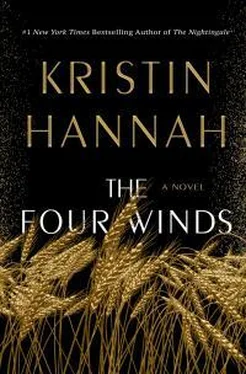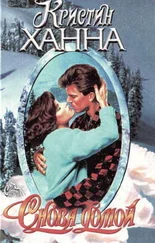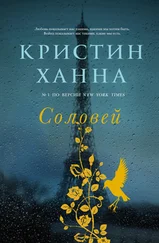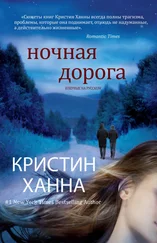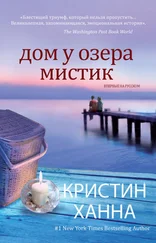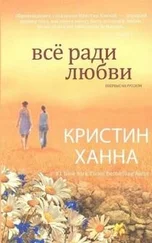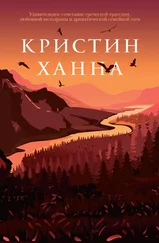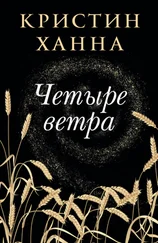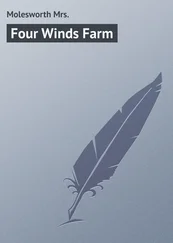“It’s bad luck to speak of such things, Elsa. Push.”
Elsa gave one last desperate push, felt a great whooshing relief, and sagged back into the pillows, exhausted.
A baby’s cry filled the room.
“A beautiful little girl with a good set of lungs.” Rose cut and tied off the umbilical cord, then wrapped the baby up in one of the many blankets they’d knitted over the long winter and handed the bundle to Elsa.
Elsa took her daughter in her arms and stared down at her in awe. Love filled her to the brim and spilled over in tears. She’d never felt anything like it before, a heady, exhilarating combination of joy and fear. “Hello, baby girl.”
The baby quieted, blinked up at her.
Rose reached into the velvet pouch she wore as a necklace around her throat. Inside the pouch was an American penny. Rose kissed the penny and held it out for Elsa to see. The coin had two wheat shafts imprinted on the back. “Tony found this on the street outside my parents’ home on the day we were to leave on the boat for America. Can you imagine such good fortune? The wheat revealed our destiny. A sign, we said to each other, and it has been true. This coin will watch over another generation now,” Rose said, looking at Elsa. “My beautiful granddaughter.”
“I want to call her Loreda,” Elsa said. “For my grandfather, who was born in Laredo.”
Rose sounded out the unfamiliar name. “Lor-ay-da. Beautiful. Most American, I think,” she said, placing the penny in Elsa’s hand. “Believe me, Elsa, this little girl will love you as no one ever has … and make you crazy and try your soul. Often all at the same time.”
In Rose’s dark, tear-brightened eyes, Elsa saw a perfect reflection of her own emotions and a soul-deep understanding of this bond—motherhood—shared by women for millennia.
She also saw more affection than she’d ever seen in her own mother’s eyes. “Welcome to the family,” Rose said in an uneven voice, and Elsa knew she was talking to her as well as to Loreda.
1934
I see one-third of a nation ill-housed, ill-clad, ill-nourished.… The test of our progress is not whether we add more to the abundance of those who have much; it is whether we provide enough for those who have too little.
—FRANKLIN D. ROOSEVELT
SIX
It was so hot that every now and then a bird fell from the sky, landing with a little thump on the hard-packed dirt. The chickens sat in dusty heaps on the ground, their heads lolled forward, and the last two cows stood together, too hot and tired to move. A listless breeze moved through the farm, plucking at the empty clothesline.
The driveway that led to the farmhouse was still hemmed in on either side by makeshift posts and barbed wire, but in several places the posts had fallen down. The trees on either side were skeletal, barely alive. This farm had been reconfigured by wind and drought, sculpted into a land of tumbleweeds and starving mesquite.
Years of drought, combined with the economic ravages of the Great Depression, had brought the Great Plains to its knees.
They’d suffered through these dry years in the Texas Panhandle, but with the whole country devastated by the Crash of ’29 and twelve million people out of work, the big-city newspapers didn’t bother covering the drought. The government offered no assistance, not that the farmers wanted it anyway. They were too proud to live on the dole. All they wanted was for rain to soften the soil and sprout the seeds so the wheat and corn would once again lift their golden arms toward the sky.
The rains had begun to slow in ’31, and in the last three years there had been almost none at all. This year, so far, they had had less than five inches. Not enough to fill a pitcher for tea, let alone water thousands of acres of wheat.
Now, on another record-breaking hot day in late August, Elsa sat in the driver’s seat of the old wagon, her hands sweating and itching inside her suede gloves as she handled the reins. There was no money for gas anymore, so the truck had become a relic stored in the barn, like the tractor and the plow.
A straw hat, once white and now brown with dust, was pulled low on her sunburned forehead, and she’d tied a blue bandanna around her throat. Grit in her eyes made her squint as she made a clicking sound with her teeth and tongue and maneuvered the wagon off the farm and onto the main road. Milo’s plodding, even clip-clop steps rang out on the hard-packed dirt. Birds sat on telephone wires strung between the poles.
It was not quite three o’clock in the afternoon when she pulled into Lonesome Tree. The town was quiet, hunkered down in the heat. There were no townspeople out shopping, no women gathered outside the storefronts. Those days were as gone as green lawns.
The hat shop was boarded up, as was the apothecary, the soda fountain, and the diner. The Rialto Movie Theater was hanging on by a thread; it showed one matinee a week, but few could afford to attend. Raggedly dressed people stood in line for food at the Presbyterian church, metal spoons and cups in hand. The children, freckled and sunburned and as whittled down as their parents, were quiet.
The lone tree on Main Street, a plains cottonwood that was the town’s namesake, was dying. Each time Elsa came to town it looked a little worse.
The wagon rolled forward, wheels clacking, passing the boarded-up county welfare building (there was lots of need, but no funds), and the blank-eyed jail that was busier than ever with drifters and hobos and no-account train tramps. The doctor’s office was still open, but the bakery was out of business. Most of the buildings were single story and made of wood. In the wet years, they’d been repainted yearly. Now they were untended and turning gray.
Elsa said, “Whoa, Milo,” and pulled up on the reins. The horse and wagon clanked to a stop. The gelding shook his head, snorted tiredly. He hated being out in this heat, too.
Elsa stared at the Silo Saloon. The squat, square building, half as wide and twice as long as any other Main Street building, had two windows that faced the street. One had been broken last year in a fight between two drunks and had never been fixed. Rows of dirty tape closed the square. The saloon had been built in the 1880s for the cowboys of the three-million-acre XIT Ranch that ran along the Texas–New Mexico border. The ranch was long gone and most of the cowboys had moved on, but the Silo remained.
In the months since Prohibition had been repealed, places like the Silo had reopened for business, but the Depression had left fewer and fewer men with spare pennies for beer.
Elsa tied the gelding to a hitching post and smoothed the front of her damp cotton dress. She’d made the dress herself, from old flour sacks. Everyone made clothes from grain and flour sacks these days. The manufacturers of the sacks had even begun printing pretty designs on the material. It was a small thing, those floral patterns, but anything that made a woman feel pretty in these hard times was worth its weight in gold. Elsa made sure that the dress, once fitted to her figure and now bagging at her narrowing hips and bust, was buttoned up to her throat. It was a sad fact that she was thirty-eight years old, a grown woman with two children, and she still hated to enter a place like this. Although she hadn’t seen her parents for years, it turned out that a parent’s disapproval was a powerful, lingering voice that shaped and defined one’s self-image.
Elsa steeled herself and opened the door. Inside, the long, narrow saloon was as drab and untended as the town itself. The smoky air smelled of spilled hooch and men’s sweat. A mahogany bar had been worn to a satin finish by fifty years of men drinking at it. Faded, shredded barstools were positioned along it; most were empty now in the middle of a hot summer day.
Читать дальше
